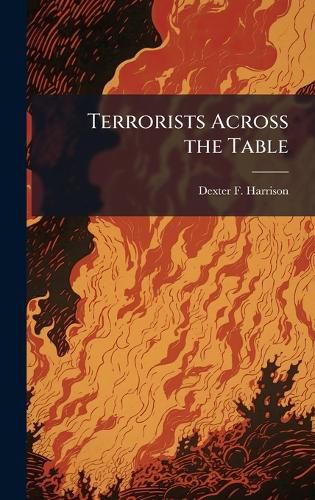Readings Newsletter
Become a Readings Member to make your shopping experience even easier.
Sign in or sign up for free!
You’re not far away from qualifying for FREE standard shipping within Australia
You’ve qualified for FREE standard shipping within Australia
The cart is loading…






The purpose of this essay is to consider the viability of the current US strategy to combat terror, the appropriateness of negotiating with absolute and contingent terrorist organizations, and the implications of negotiations in view of US National Security Policy. The 9/11 terrorists attacks prompted US lawmakers to reconsider the efficacy of US National Security Strategy. What ensued was a change in US National Security Strategy doctrine, which among other changes, outlined the United States' policy of not negotiating with terrorists. While current US policy clearly establishes the US's resolve not to have democracy encumbered or its' sovereignty questioned, some stipulate that the fruits of such a policy have yet to be produced. Increasing terrorist activity in Iraq, resurgent terrorist activity in Afghanistan, and Bin Laden's ability to elude capture and direct credible attacks, call into question the effectiveness of the US's stated policy of non-negotiation with terrorists.
This work has been selected by scholars as being culturally important, and is part of the knowledge base of civilization as we know it. This work was reproduced from the original artifact, and remains as true to the original work as possible. Therefore, you will see the original copyright references, library stamps (as most of these works have been housed in our most important libraries around the world), and other notations in the work.
This work is in the public domain in the United States of America, and possibly other nations. Within the United States, you may freely copy and distribute this work, as no entity (individual or corporate) has a copyright on the body of the work.
As a reproduction of a historical artifact, this work may contain missing or blurred pages, poor pictures, errant marks, etc. Scholars believe, and we concur, that this work is important enough to be preserved, reproduced, and made generally available to the public. We appreciate your support of the preservation process, and thank you for being an important part of keeping this knowledge alive and relevant.
$9.00 standard shipping within Australia
FREE standard shipping within Australia for orders over $100.00
Express & International shipping calculated at checkout
The purpose of this essay is to consider the viability of the current US strategy to combat terror, the appropriateness of negotiating with absolute and contingent terrorist organizations, and the implications of negotiations in view of US National Security Policy. The 9/11 terrorists attacks prompted US lawmakers to reconsider the efficacy of US National Security Strategy. What ensued was a change in US National Security Strategy doctrine, which among other changes, outlined the United States' policy of not negotiating with terrorists. While current US policy clearly establishes the US's resolve not to have democracy encumbered or its' sovereignty questioned, some stipulate that the fruits of such a policy have yet to be produced. Increasing terrorist activity in Iraq, resurgent terrorist activity in Afghanistan, and Bin Laden's ability to elude capture and direct credible attacks, call into question the effectiveness of the US's stated policy of non-negotiation with terrorists.
This work has been selected by scholars as being culturally important, and is part of the knowledge base of civilization as we know it. This work was reproduced from the original artifact, and remains as true to the original work as possible. Therefore, you will see the original copyright references, library stamps (as most of these works have been housed in our most important libraries around the world), and other notations in the work.
This work is in the public domain in the United States of America, and possibly other nations. Within the United States, you may freely copy and distribute this work, as no entity (individual or corporate) has a copyright on the body of the work.
As a reproduction of a historical artifact, this work may contain missing or blurred pages, poor pictures, errant marks, etc. Scholars believe, and we concur, that this work is important enough to be preserved, reproduced, and made generally available to the public. We appreciate your support of the preservation process, and thank you for being an important part of keeping this knowledge alive and relevant.